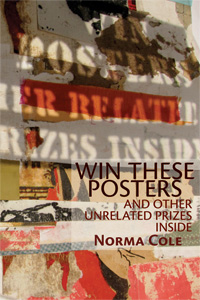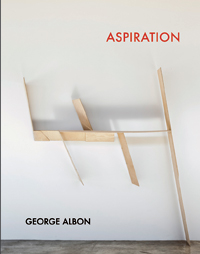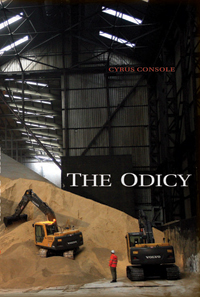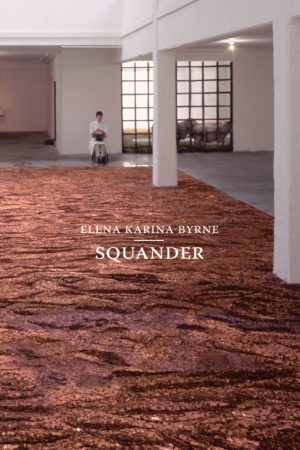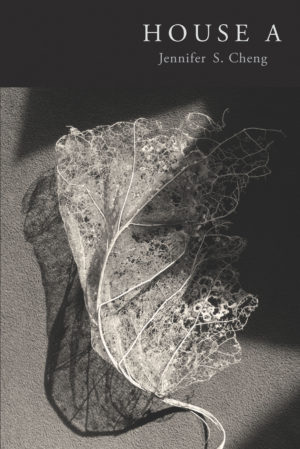Description
Win These Posters and Other Unrelated Prizes Inside opens with a foreword, an envoi laying out the concerns of the book. The book’s rhythmic geography tracks a shadow epic with its “1400 Facts,” aspects of feats, or anti-feats, events on the ground, but the hero/anti-hero is “you” & “I” & “we” and the narrative is “splinters of stars.” Fact/fiction, the West/Middle East, present/past, surface/depths, sound/silence— antinomies or continua? “More Facts” marks the question, “When// does the past/ begin?” What does it mean, “to be at war”? How do we measure agency or time? Compression, compassion, rigor, reduction, focus. By means of posters, messages, notices, announcements and images. The poems, linked to one another by motion, emotion, image, diction, consider questions & “facts” – what are facts? “It is the simple fact of one’s own existence as possibility or potentiality.” [Giorgio Agamben, The Coming Community Ch.11] What are dreams? The book closes with “If I’m Asleep” —don’t wake me.
I think deeply that WIN THESE POSTERS comes first of all from the voice and the modalities of its call. I also deeply think the poems come from the wall and modalities of shouting out like posters, announcements, notices, placards, tags, graffiti, in short anything that cries out, calls, protests exactly like Mayakovsky’s posters/signs that set the revolutionary crowds on fire.
Jean Daive, author of Under The Dome: Walks with Paul Celan
There is a knot at the center of this language working its way free of tense and the tension of syntax as it pushes against the presence of the world in which these poems exist. The action taking place here proposes a stance, a stilling of the real, that faces the reader, in defiance. Yet, like the glowing eyes of a wolf or the sound of a winged owl cutting through the air, these made things are sufficient unto themselves, the yield of an occult process we deem natural until it gets disrupted. The tokens offered here, the “prizes inside,” are the gifts of instruction that Norma Cole has fought so tenaciously to provide us with.
Ammiel Alcalay, author of A Little History
I really love WIN THESE POSTERS… These poems give us an intense and subtle pleasure, while they sink into a double melancholy: theirs’, and ours’. Why? “Because [they bring the news that] even the sun has cancer”, “which means we’re in a war”, on “a page of flames”. Norma’s vision is of a world of ordinary violence mixing with ordinary life, but also of an extreme violence raping the soul. That vision has here surpassed her own intellectual powers, which are amazing, has traversed ages and galaxies, and moved by a seldom encountered profound tenderness for the pain of living, has reached the ultimate unity between mind, heart and events, in words that leave us totally disarmed.
Etel Adnan, author of Sea and Fog
About the Author
Reviews
Excerpt
Born in Toronto, Norma Cole attended University of Toronto for both undergrad (Modern Languages: French & Italian) & grad (MA in French) with a stint of editing in between. Always wrote poetry and made art. She moved to San Francisco in 1977, got a job at SFUSD, happened into the New College, and met her core community of poets, including Robert Duncan, Michael Palmer, David Levi Strauss, Susan Thackrey, Aaron Shurin, Laura Moriarty and many more. Back to France, Paris this time—she met French poets including Claude Royet-Journoud, Emmanuel Hocquard; and Joey Simas, who published my her book, Mace Hill Remap. She began translating contemporary poetry from French, starting with a book Claude Royet-Journoud gave her, Danielle Collobert’s It Then. Rosmarie Waldrop’s press Burning Deck invited her to do more. Translating is a matter of poetics for her. She has been in SF for over 30 years now, teaching at SFSU, USF, Otis College of Art (LA), Saint Mary’s College, Berkeley, etc. as an adjunct lecturer. She did three installations at the California Historical Society for Poetry & its Arts: Bay Area Poetry 1954—2004. In October she curated a show at CUE Art Foundation in NY where she also gave reading. Was invited to be Regents’ Lecturer in the Comparative Literature Department, UC Berkeley, Fall 2008. She was “in conversation” at SFMOMA (Sunday, Jan. 25, 2009, 2 p.m., with Aaron Shurin, Michael Palmer & Susan Thackrey) to talk about the concept of joinery in sculpture and poetry, for the closing day of Martin Puryear’s show. This past year she was invited to be one of the columnists at Open Space, the featured blog of SFMOMA, where she wrote “pieces” on Libya, Ai Weiwei, Jack Spicer, Iraq, Walter Benjamin and more (worked with linking, sampling, You Tube, visual images etc.) for 15 weeks. http://blog.sfmoma.org/author/normacole/
She has given a number of readings in France, and has read with the well-known French poet Jean Daive, whose book she translated, and who has translated much of the poetry that is in Win These Posters. Her translation, A Woman With Several Lives., by Jean Daive is available from La Presse 2011. His translation of Posters will appear in France as Avis de faits et de méfaits.
She continues to work with the poetry students at the University of San Francisco where she teaches an International Poetry course.
A brief interview with Norma Cole
(conducted by Rusty Morrison)
How/why did you begin the poem sequences in WIN THESE POSTERS AND OTHER UNRELATED PRIZES INSIDE?
This new book, WIN THESE POSTERS AND OTHER UNRELATED PRIZES INSIDE, springs from a previous poem, “Dear Robert,” (Do the Monkey, Zasterle Press, Canary Islands 2006; also in Where Shadows Will: Selected Poems 1988-2008, City Lights 2009). The Dear Robert being addressed is Robert Duncan, and the poem of his that I am engaged with is “Achilles’ Song” (Groundwork: Before the War) and “the deeper unsatisfied war beneath/ and behind the declared war.” I began to address the pause “beneath” and “behind,” that is, between—between the intake of a breath and the exhalation—the silence of bells, the time it takes to “Lower the drawbridge/ drawn by dreamers.” We enter a dream cycle here that ends with the last line on the last page, “This proves I dreamed.”
So many of the lines in these poem series strike me as cinematic, intimate as well as iconic. Maybe it’s their stark brevity, their unexpected emotional resonances, their often surprising, unsettling humor—“emotions get tired of performance” or “some/ thing in suspension/ that was pretending a/ circled piece of/air–the fantasy/of being/exempt.” They turn a key to open me to an uncanny, yet instinctive level of awareness, a listening for what begins in misunderstanding or mystery which enlarges my understanding. Can you speak to your intentions for the book?
WIN THESE POSTERS opens with a foreword, an envoi laying out the concerns of the book. “Santa from a tank” is from a Youtube sequence: a US Marine in Iraq dressed as Santa. The poem unfolds from that startling subject. The book’s rhythmic geography tracks a shadow epic with its “1400 Facts,” aspects of feats, or anti-feats, events on the ground, but the hero/anti-hero is “you” & “I” & “we” and the narrative is “splinters of stars.” Fact/fiction, the West/Middle East, present/past, surface/depths, sound/silence—antinomies or continua? “More Facts” marks the question, “When// does the past/ begin?” What does it mean, “to be at war”? How do we measure agency or time? Compression, compassion, rigor, reduction, focus. By means of posters, messages, notices, announcements and images. The poems, linked to one another by motion, emotion, image, diction, consider questions & “facts” – what are facts? “It is the simple fact of one’s own existence as possibility or potentiality.” [Giorgio Agamben, The Coming Community Ch.11] What are dreams? The book closes with “If I’m Asleep” —don’t wake me.
The title is immediately enticing!, its diction seems so direct, so much like an advertisement, yet it defies one with its turn. How/why did you choose it?
The title: Posters–Related? Unrelated? Both! The book’s title came to me by happenstance, a chance encounter with seeing those exact words on a poster or placard in a store window. I saw it, wrote it down in my notebook. It was an odd word set, I thought. To play, to win. To dream. Later, I knew it would make the perfect title for the manuscript I had been putting together.
What, specifically, were some of the most interesting surprises you encountered as you worked through the writing of this text? Were there unique challenges or opportunities that presented themselves?
It’s always an encounter and a surprise to begin something new and then to see it through. I came to feel that this particular book, with its vocative address “has no borders… but stands in relation.” Like the “pause” I mentioned before.
You has no borders.
Whoever says You does not have something; he has nothing. But he stands in relation.
(p.55, I and Thou, Martin Buber. Tr. Walter Kaufmann)
Would you tell me a bit about yourself? Who are the authors with whom you feel a kinship?
Born in Toronto, attended University of Toronto for both undergrad (Modern Languages: French & Italian) & grad (MA in French) with a stint of editing in between. Always wrote poetry and made art. Lived in a beautiful tiny village in the south of France1968—71, drawing, sculpting, writing & doing odd jobs. Had a child, son Jesse, moved back to Toronto for 5 years where I went to night school and received my Early Childhood Education degree. Moved to San Francisco in 1977, got a job at SFUSD, happened into the New College, and met my core community of poets, including Robert Duncan, Michael Palmer, David Levi Strauss, Susan Thackrey, Aaron Shurin, Laura Moriarty and many more. Back to France, Paris this time—met French poets including Claude Royet-Journoud, Emmanuel Hocquard; and Joey Simas, who published my first book, Mace Hill Remap. Began translating contemporary poetry from French, starting with a book Claude Royet-Journoud gave me, and I couldn’t resist, Danielle Collobert’s It Then. Rosmarie Waldrop got wind of my translations and invited me to do more. Translating is a matter of poetics, after all. Have been in SF for over 30 years now, teaching at SFSU, USF, Otis College of Art (LA), Saint Mary’s College, UC Berkeley, etc. as an adjunct lecturer. Did three installations at the California Historical Society for Poetry & its Arts: Bay Area Poetry 1954—2004. In October 2008, curated a show at CUE Art Foundation in NY where I also gave reading. Was invited to be Regents’ Lecturer in the Comparative Literature Department, UC Berkeley, Fall 2008. I was “in conversation” at SFMOMA (Sunday, Jan. 25, 2009, 2 p.m., with Aaron Shurin, Michael Palmer & Susan Thackrey) to talk about the concept of joinery in sculpture and poetry, for the closing day of Martin Puryear’s show. In 2010, I was invited to be one of the columnists at Open Space, the featured blog of SFMOMA, where I wrote “pieces” on Libya, Ai Weiwei, Jack Spicer, Iraq, Walter Benjamin and more (worked with linking, sampling, You Tube, visual images etc.) for 15 weeks. (http://blog.sfmoma.org/author/normacole/) In October 2011, I gave 3 readings in France, 2 in Paris, one in Marseille, with the well-known French poet Jean Daive, whose book I had translated, A Woman With Several Lives (La Presse 2011); and who has translated much of the poetry that is in WIN THESE POSTERS. His translation of my work will appear in France as Avis de faits et de méfaits. The Poetry Foundation invited me to write for their on-going Craft Work series for March 2012, which I thoroughly enjoyed. (http://www.poetryfoundation.org/harriet/2012/03/introducing-norma-cole/)
I still work with the wonderful poetry students at the University of San Francisco where I teach International Poetry.
Who are you reading currently? What books are on your nightstand or in your carry-along bag?
I am reading, about to read, or rereading:
Suzanne Stein, TOUT VA BIEN
Brandon Brown, The Poems of Gaius Valerius Catullus
Alice Kaplan, Dreaming in French
David Gascoyne, Collected Journals 1936-42
Adonis, Selected Poems tr. Khaled Mattawa
Hosea Hirata, Poetry and Poetics of Nishiwaka Junzaburo
Shaun Gallagher, How the Body Shapes the Mind
Alva Noe, Out of Our Heads: Why You Are Not Your Brain, and Other Lessons from the Biology of Consciousness
Nelly Kaplan, Napoléon (about the making of Abel Gance’s silent film “Napoléon” which I saw recently)
Don Delillo, Cosmopolis (in anticipation of David Cronenberg’s film “Cosmopolis”)
You chose the artist, Amy Trachtenberg, who created the image that is used in the cover design for this book—can you talk a bit about that choice an/or working with Amy?
Amy and I have been friends for almost 30 years. I know her work well and felt that she would do something extraordinary for the cover of this book. I sent her the manuscript (she’d seen most of the work in it anyway) and said that I was thinking “posters ripped off walls.” And she did it!
Gnomic, sometimes quite traditional in their symbols (doves, lutes), these compact pieces are more accessible than much of Cole’s demanding earlier work. In her second sequence, “More Facts,” short units speak across the borders of the page. In one transition, “nobody wanted// to hear that/ conversation/ is just// possible/ emptiness is/ relative// the way air/ resists”: the page break, coming before the word “conversation,” stands for the separateness of human bodies, the barriers to conversation after all. This focus on difficulty, on what comes between words and meanings, continues into the prose and verse of “If I’m Asleep,” whose fragments can feel like erasures: “Night is approaching/ Butch// one pill less.” Cole (Where Shadows Will) deals in hints, and in mysteries.
…the poems themselves do feel like prize-remnants from a dream, like pieces of knowledge gleaned from living with tenderness.
The inquiry that embarks blithely on a fact-finding mission conceals a threat that Cole works to lay bare throughout this book. Despite being fundamentally shared, events are multiple, refracted across cultures and continents, and mediated by observation itself—so that to seek out fact in a militarized world means not only sifting through the remains but knowing that one’s efforts are likely implicated in the destruction.
from If I’m Asleep
At the end of the drain, I meant day, I said to the other “Don’t come,”
but she insisted. “Don’t come back.” She wasn’t interested.
“You look good,” she said, “your handwriting steady. Dignified. Look a
question in the eye. In the face.”
“In your face,” I said. “Face it. The marathon of everything. Not from
the main action of the film. You comb your hair. If memory leaves no
trace, is it memory? A leaf falls on the tile.”
“I didn’t see it fall,” said the other. “Imagine the shock of a
meadowlark, the ortolan, the phantasm between the sky and my eye,
something that seems like it brushes over. Read obstacle for oracle.
Brush covers it.”
“Face up to it, the image, the object,” I said. “With our general mind,
my skin’s not solid. Happy accident. Seascape with island on the
horizon. Mythology or pathology. We’d like to thank the men and
women. We eat that shit. Mark the starling, the starting point from
which you deviate. If I’m asleep don’t wake me.”
“I thought I saw,” said the other, “a turn, suspense. Where that place is.”
“Clear. Your favorite color. Concrete. Hawks the color of sand. Oneiric.
Pull the threads together.”

